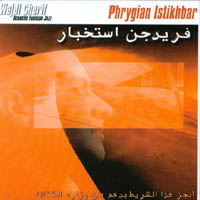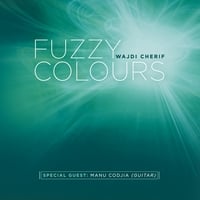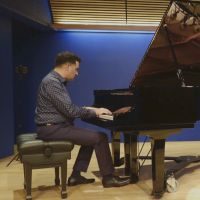Home » Jazz Musicians » Wajdi Cherif
Wajdi Cherif
Wajdi Cherif's passion for music began at a young age when he started playing pop music he heard on the local radio by ear at the age of five. It wasn't until his late twenties, while studying in college, that his interest in jazz was sparked. He then discovered the works of pianists Chick Corea, Bill Evans, Keith Jarrett, and Thelonious Monk by watching their live performance videos. This pivotal moment marked a turning point in his musical career, and he decided to delve deeper into jazz piano and composition.
In 1998, Wajdi Cherif made his debut as a jazz pianist when he played with local jazz musicians at various venues and festivals in Tunisia. This was a valuable opportunity for him to collaborate with international jazz artists who were touring the country at the time. A few months later, he the opening set for jazz legend Archie Shepp at the “Jazz in Tunis” festival in the City Hall Theatre in Tunis.
Determined to further his musical passion, Wajdi moved to France and studied jazz piano and harmony with pianist Bernard Maury, a disciple and close friend of Bill Evans. During this time, he was exposed to great jazz pianists such as Kenny Werner, Chick Corea, Ahmad Jamal, and Martial Solal, to name a few. These experiences shaped his vision of music and piano playing and influenced his unique approach to playing the piano and writing music.
In 2003, Wajdi Cherif recorded his debut album “Phrygian Istikhbar” in Paris with Diego Imbert on acoustic bass, Jeff Boudreau on drums, and Habib Samandi on Arabic percussion. The album was a finalist in the Indie Acoustic Awards in the USA in 2004 and received positive reviews. Wajdi Cherif continued to mature as a pianist and composer with his 2006 album “Jasmine”, recorded with some of France's finest young jazz musicians. The album received accolades such as an honorable mention in the International Songwriting Competition (judged by Sonny Rollins, John Scofield, and Steve Vai), the Indie Acoustic Project's Best CD of 2005, and the first-place winner of the UNISONG Songwriting Contest.
Wajdi Cherif released his third album “Fuzzy Colors” in 2009, a fusion of jazz and personal compositions that showcase his musical influences. With his unique sound and distinctive performances, Wajdi has established himself as a leading jazz pianist on the jazz scene, performing at renowned venues such as the Tabarka Jazz Festival in Tunisia, the Institut Du Monde Arabe in Paris, the Jazz Festival of Reims in France, the Theatre Maison Neuve in Canada, and more. He has also played in several iconic jazz clubs in Paris, including the Duc des Lombards, Sunset/Sunside, and Baiser Salé.
Read moreWajdi Cherif: Jasmine

by Budd Kopman
Words like “progress," “advancement" and “moving forward" are dangerous to use in describing art, yet they pop up all the time in that context. The idea that the history of jazz is one of progress or advancement rather than simply change is very popular, but unwarranted in my view. It would be easy to say that Wadji Cherif has progressed from his first album, Phrygian Istikhbar--a fusion of Arabic music and jazz that stayed more on the Arabic side--to this ...
Continue ReadingWajdi Cherif: Phrygian Istikhbar

by Budd Kopman
I approached Phrygian Istikhbar with a bit of trepidation, since the signposts of “world music as jazz were very strong. The first track, “Voyage, only reinforced my fears, since the usual elements of world music--scalar rather than melodic improvising, static or oscillating harmony, and strong, repetitive rhythmic patterns--were all present. Cherif uses a little trill a lot, but that is probably part of the general Tunisian musical ethos. “El Gasba surprises by starting out like a straight ...
Continue ReadingThe reach of the jazz aesthetic keeps expanding, and Jasmine is a prime example of a totally successful fusion of different musics. All About Jazz (USA) Tunisian pianist Wajdi Cherif with his CD EP Phrygian Istikhbar, while retaining the flavour of his native country’s music, places more emphasis on the jazz tradition, resulting in a fresh new sound that brings a different slant to the concept of world music. JAZZREVIEW (USA) Pochade, immediately draws the extremely original contours of the album, with a double flavour of jazz and arabic music… "Falaises" confirms the inventiveness of Wajdi Cherif and his unique style, a very convincing fusion of jazz and arabic music..










































